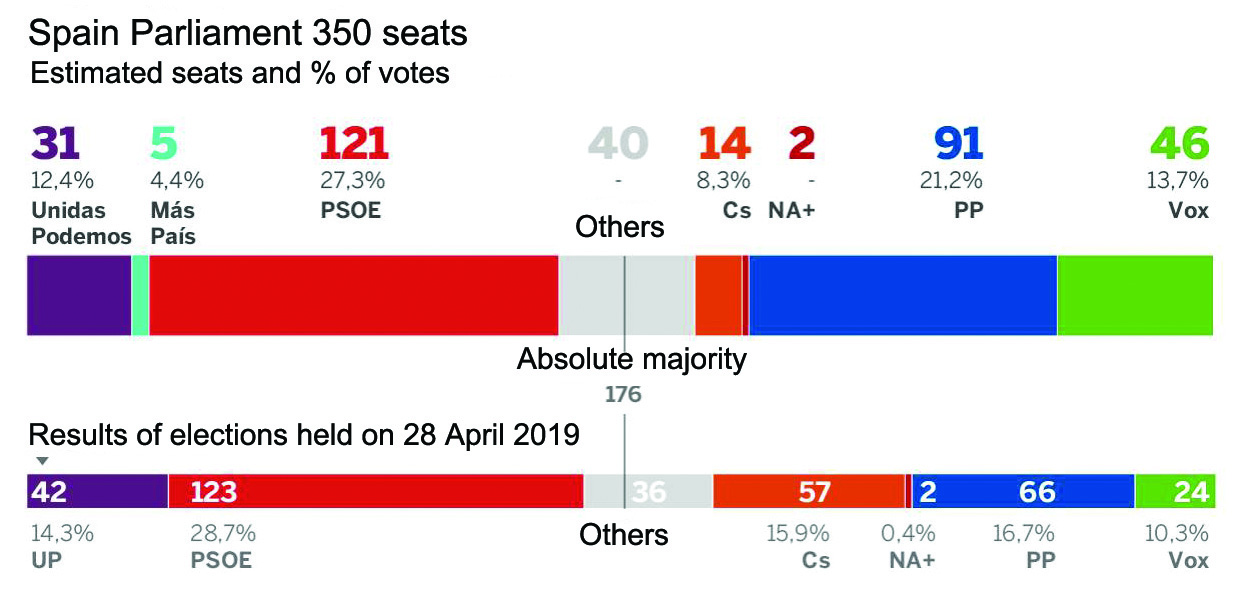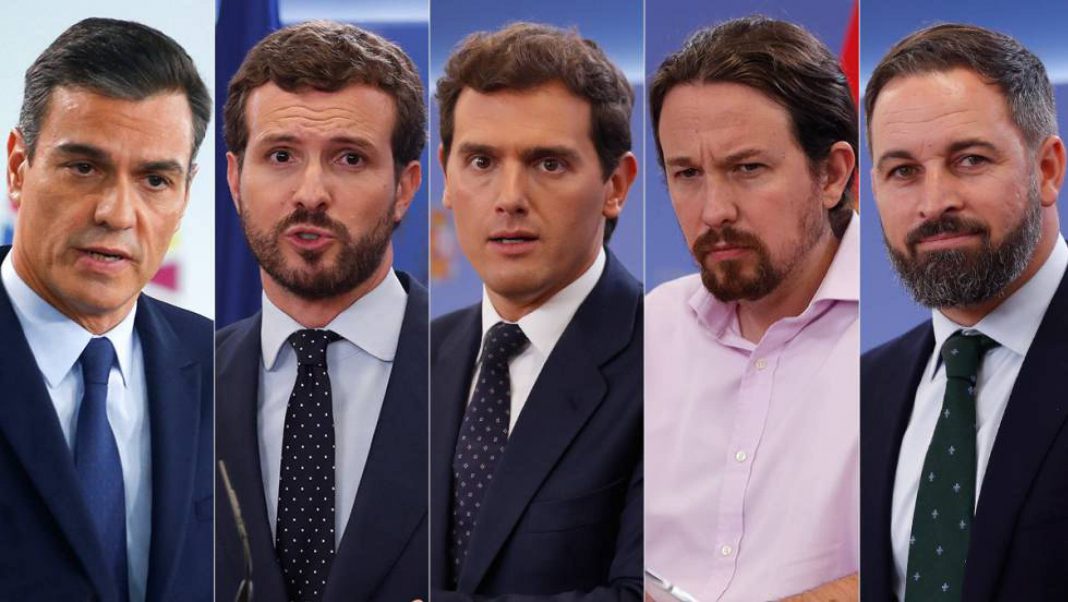- PP to increase seats from 66 to 91 seats,
- Vox to consolidate themselves as the third largest party
- Vote for C’s to collapse as seats fall from 57 to 14
Next Sunday’s Spanish General Election (the fourth in four years), once again seems unlikely to resolve the country’s political block, according to a pollster survey by data research firm 40Db
The PSOE would win the largest number of seats, predicted to be 121, two less than in the April elections, but by forming a coalition with Podemos, who’s share of the vote would drop from 42 to 31 seats, and the new Más Madrid Party (5), headed up by one of Podemos’s original founders, Íñigo Errejón, it would still fall well short of the 176 seats needed for an absolute majority.
The survey also indicates that the block to the political right continues to grow and will achieve only four seats less than the coalition of Party’s to the left. The big losers are likely to be Ciudadanos, which would see it’s seats fall from 57 to 14 deputies, although this would be compensated by the recovery of the Partido Popular (from 66 to 91), and the rise of the far-right Vox, which with 46 deputies would become the third largest party.

Acting Prime Minister Pedro Sanchez (PSOE) was forced to call the election after failing to form a government. But next Sunday’s poll would suggest the deadlock continuing, particularly as the centre-left leader has ruled out a coalition with PP, the party on course to finish second.
However the political parties are convinced that these first days of the campaign are simply serving to prepare the ground for the moment of truth which will be Monday’s televised debate between the five main candidates: Pedro Sánchez (PSOE), Pablo Casado (PP), Albert Rivera (Ciudadanos), Pablo Iglesias (Unidas Podemos) and Santiago Abascal (Vox). That, they argue, is when the real campaigning will begin.





